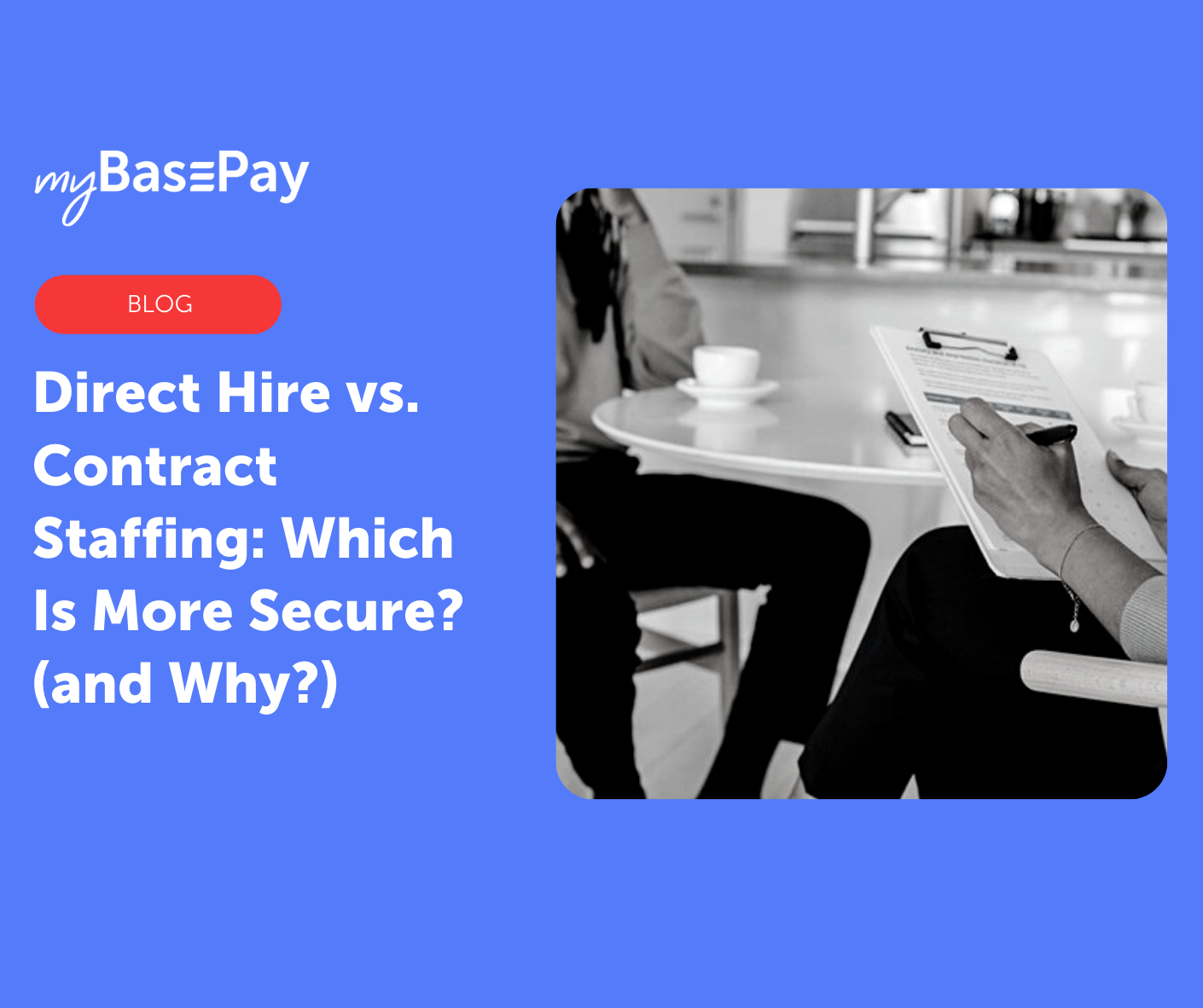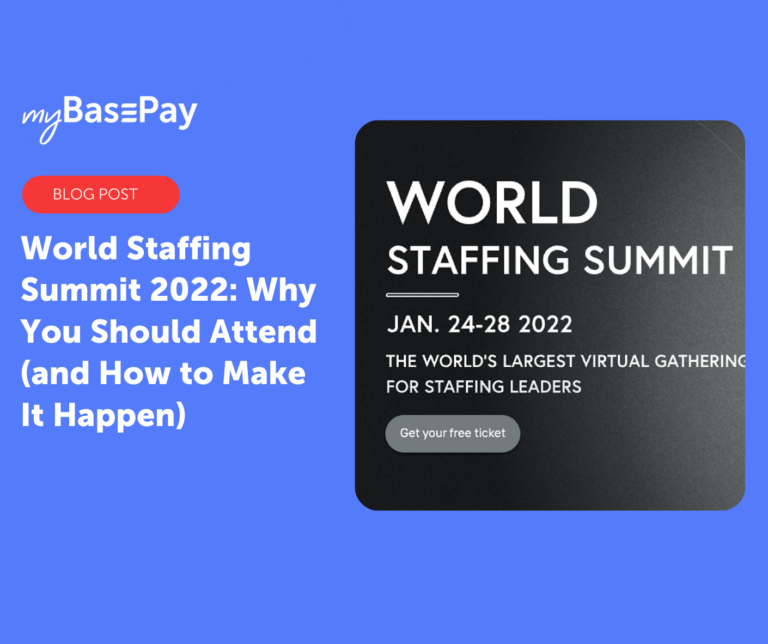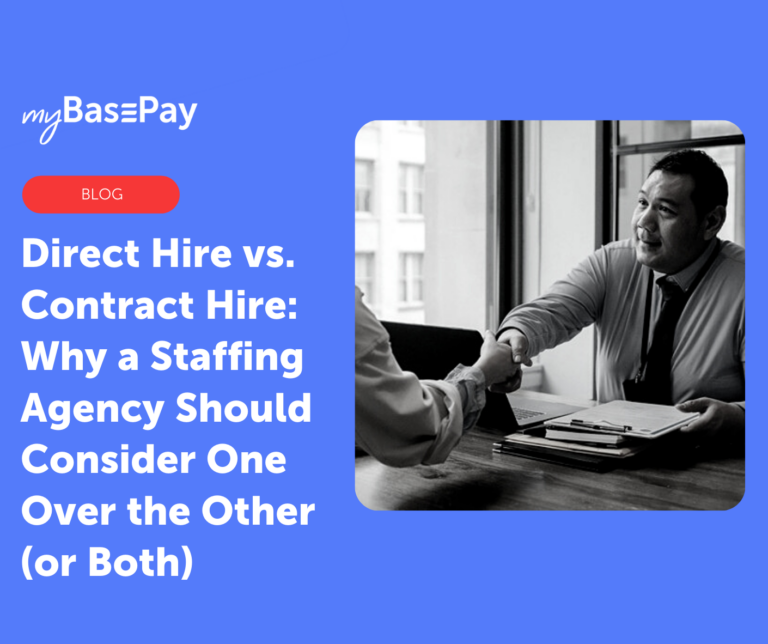Direct Hire vs. Contract Staffing: Which Is More Secure? (and Why?)
The ongoing debate over direct-hire versus contract staffing has become particularly popular as we enter hiring season. Since the strike of COVID-19 and the mass exodus occurring in workplaces, recruiters are shuffling back and forth between the two staffing strategies.
Many have landed on the idea that direct hire sourcing is a more secure and effective option. However, as the pandemic has taught us, nothing is permanent. Employees who have been loyal members of a company for over 10 years were suddenly booted out of their positions. This uncertainty has influenced many other workers to leave their jobs, resulting in what’s been called “the Great Resignation.”
As this exit continues, close to 50% of unemployed workers need a new job. The common misconception is that these workers prefer choosing a direct-hire position, as it seemingly offers greater security and opportunity.
In reality, more workers are leaving direct hire positions to become contractors, as contract assignments can be more secure than a permanent role. But aren’t contract positions always temporary? How can a temporary job be deemed more secure? Wouldn’t these unemployed workers prefer a permanent position?
At first, the answers to these questions may seem obvious. But upon further inspection, you might be surprised to find why one staffing trend is more secure than the other.
Direct Hire vs. Contract Staffing: What’s the Difference?
Before we dive straight into the security aspect of direct hire and contract staffing, let’s first understand the difference between the two. Direct hire, by definition, is typically a full-time salary position that offers the employee various benefits. In the case of direct placement, a staffing agency works to locate and hire long-term staff members on behalf of their clients.
Since direct hires are typically long-term positions, the hiring and onboarding process tends to be slower than contract positions. Employers take longer evaluating their list of candidates as there is a greater risk of hiring the wrong person for a permanent role.
The process of contract hire is relatively similar to direct-hire, but the result is that a contract hire requires a less immediate commitment between the candidate and the company. Instead of being placed on the company salary, contract hire is paid through the staffing agency.
Not only does this offer greater flexibility for the candidate, but it also gives the client time to determine whether or not the contract candidate would be a good fit for the company long-term. The length of these contracts varies depending on the needs of the company and the demands of the candidate.
Debunking Contract Staffing Misconceptions
As previously mentioned, there are a handful of misconceptions surrounding the security of contract hires. While most recruiters believe direct-hire strategies offer more security for a candidate, recent world events have shaken that notion.
When the pandemic experienced its first breakout in 2020, the nation saw the greatest level of unemployment since the Great Depression. Workers who weren’t considered “essential” were either sent home to work or fired.
As lockdowns and extended quarantine periods ensued, finding a job became nearly impossible for the unemployed. Then, in 2021, the world slowly but surely opened up, and companies began rehiring. However, those who were removed from their previous positions suddenly realized how non-permanent “permanent” jobs were.
Even before the pandemic, it was considered rare for an employee to stay with one company for their entire career. While many initially thought contract assignments were risky due to the uncertainty of their length, workers saw this as an opportunity to constantly be prepared. Instead of depending on their one employer, people could now rely on their skills to secure consistent work.
Likewise, recruiters could hire contractors regularly to check on the status of the assignment while simultaneously lining up another assignment for the contractor — thus, keeping the flow of work moving.
Benefits of Contract Staffing
Now, let’s analyze why a worker considers a contract position more secure than a permanent position. Accepting a position knowing that it will most likely come to an end might seem risky, but this actually allows a contractor to prepare ahead of time for upcoming work. By keeping their resumes updated, recruiters can receive a real-time estimate of a contractor’s availability, and thus accurately set deadlines for assignments.
This also offers a more consistent line of communication between an employer and a contractor. Frequent conversations about a current or upcoming project are a necessity, which leads to stronger relationships with clients.
In addition to their flexibility, contractors are also eligible to earn more for their work, as they are paid on an hourly basis. Since there is presumably less stability while working on a contract, companies are willing to pay more money for the brief period you’d work for them.
Also, contract staffing allows workers to have access to more variety when it comes to types of work, projects, and companies. And with the rise of remote work, contractors are typically allowed to choose their own work location, which saves them considerable time and money.
Plus, between the latest developments of the pandemic, the supply chain, and the shipping crises, workers have realized how uncertain their so-called permanent jobs are, causing many to choose contract work over direct hire positions.
Why You Should Choose Contract Staffing Over Direct Hire
According to a Freelancing in America study, nearly 60 million Americans have become freelancers — and that statistic is expected to increase to 90 million by 2028. Workers see more value in a temporary, hourly-pay position than a full-time, salaried job.
Much of that has to do with the opportunity for professional growth within contract positions. Contractors can pick up several different skills and experiences, which, in the eyes of the recruiter, make for an impressive resume.
When starting the job-hunting process, you should consider the pros and cons to direct hires and contract hires. While there are benefits to both, the decision will ultimately depend on the needs of the company.
Author: Cesar Romero
Cesar is the Head of Marketing at myBasePay, where he’s responsible for overseeing the company’s content marketing, community, and partnerships strategy. He also co-hosts The Ivy Podcast where he interviews executives from Fortune 500 companies on executive leadership. When he’s not helping startups with marketing and community strategy, you can find him paying it forward by serving as a mentor for leading organizations like StartingBloc, Hive, and Global Citizen Year.






